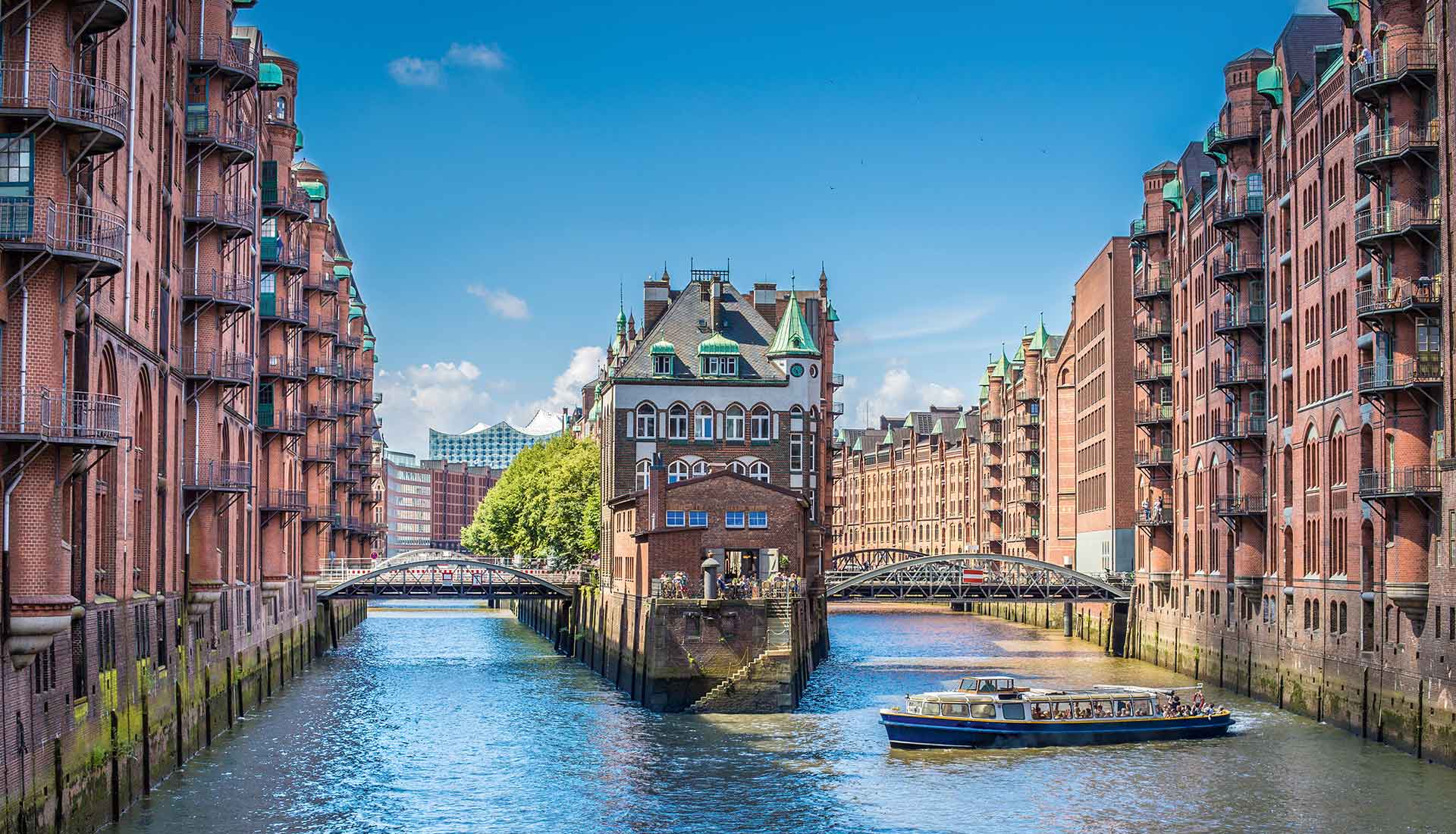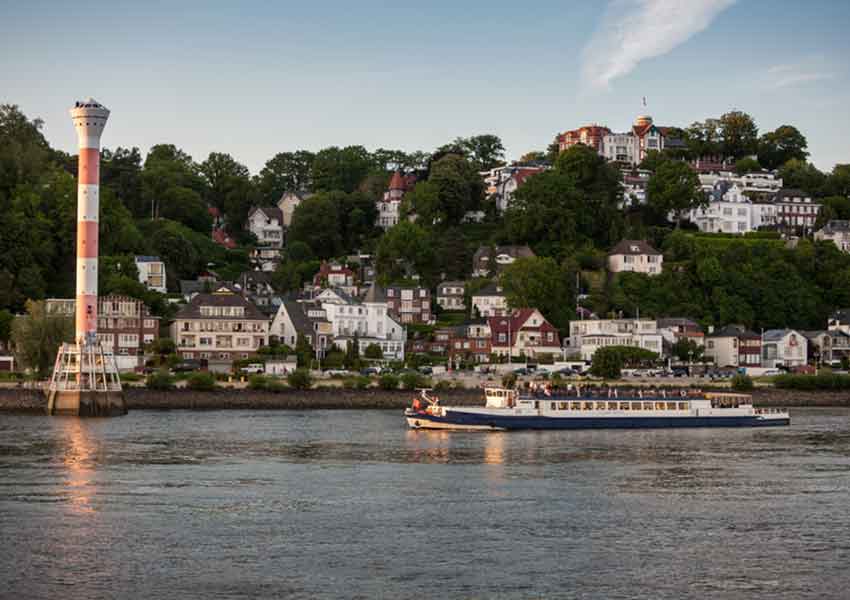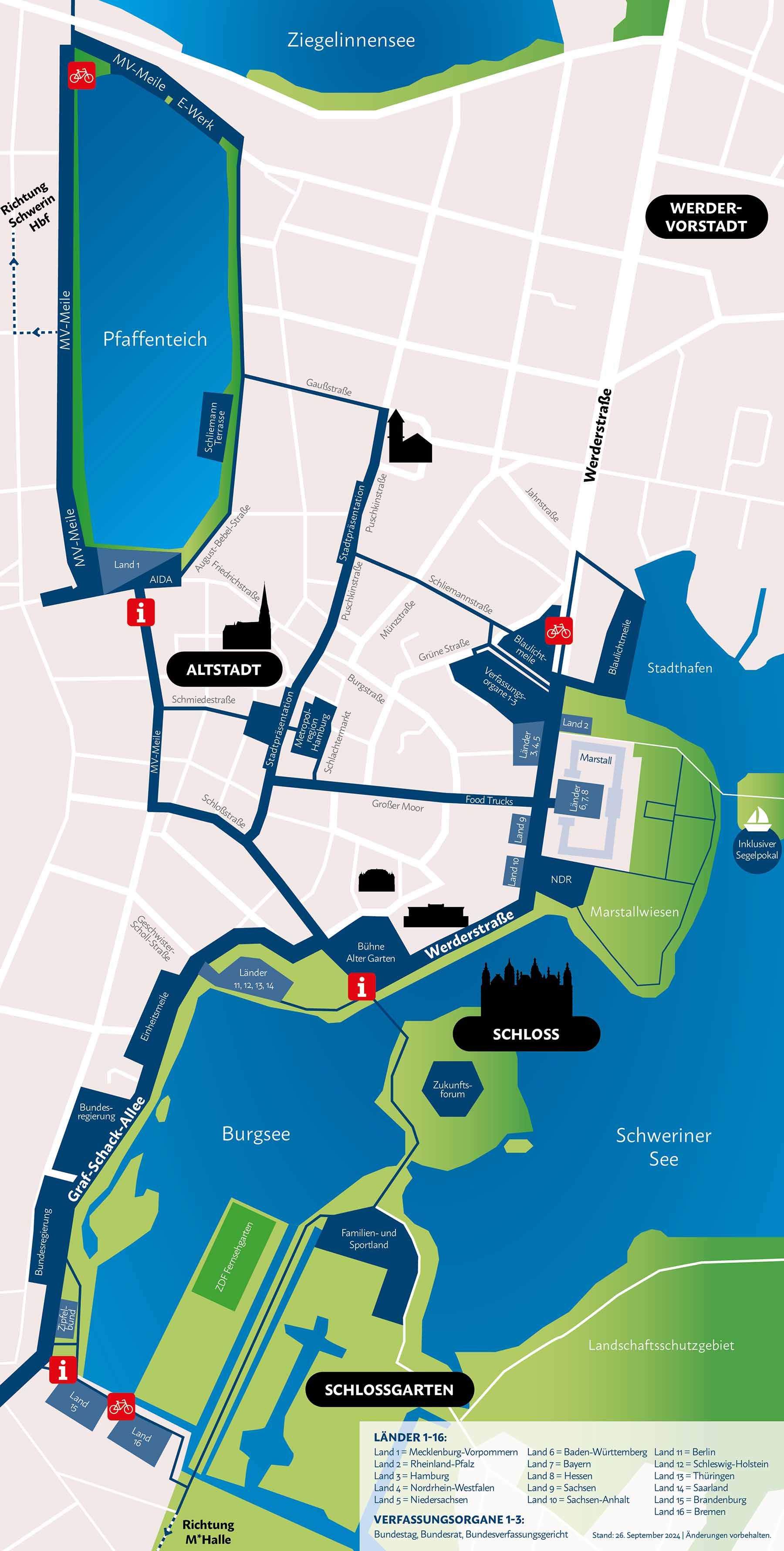
Freie und Hansestadt Hamburg
Hamburg, the place where horizons open
»Moin«

“Moin!” This is way people typically greet each other in Hamburg – and it is used both day and night. The root of the word is the Low German “moi”, which means good, nice or pleasant – and we think it really hits the nail on the head.
Hamburg is a city and state in one: this means that the first mayor of the city of Hamburg, Dr Peter Tschentscher, is also minister-president of the state of Hamburg. With around 1.9 million inhabitants, Hamburg is the second-largest city in Germany after Berlin – and the largest city in Europe that isn’t a capital. The Hamburg metropolitan region is one of the most important industrial areas in Germany: around 5 million people live and work here. The heart of this region beats in the port of Hamburg – Europe’s third largest – with its three rivers, Elbe, Alster and Bille. Over eight per cent of Hamburg’s area is covered by water, around 10 per cent are nature reserves.
Hamburg is a young, modern European city: we keep our eye firmly on mega trends in society, we have a passion for innovation – and this makes us a magnet for people who want to live in the now. Of all 16 federal states, the Hanseatic City of Hamburg has the youngest population. The average age of the city’s inhabitants is 42.3 years, which is significantly lower than the German average of 44.8 years.
Capital
Founded
Population
Location
Area
First Mayor
5 Highlights
in Hamburg

Planetarium
Hamburg’s Planetarium is located in a historic water tower in the city’s lush Stadtpark. Its spectacular shows and projections take audiences on journeys into the depths of the galaxy. State-of-the-art projection technology and a stunning domed auditorium make a visit to the Planetarium an unforgettable experience for astronomy buffs and all those curious about the world around and above us.

Blankenese
Steps, a sand beach and stunning panorama: with its nearly 5,000 steps, the Treppenviertel (literally “step quarter”) perches on the slopes leading up from the Elbe beach to Blankenese. Between villas and charming old captain’s cottages, you are treated to an unforgettable view of the passing ships and traffic on the river.

Speicherstadt
The Speicherstadt, the world’s largest historic warehouse complex and a UNESCO World Heritage Site, boasts impressive brick architecture and picturesque canals. There are also many fascinating museums, including Miniatur Wunderland, the world’s largest model railway museum, and the Spice Museum.

Street Art
Hamburg is a paradise for street art fans, with artworks splashed across the city. In the Gängeviertel, a lively, alternative culture centre, bold murals and graffiti – many making witty political statements – grace the walls of the neighbourhood. Karoviertel, famed for its creative vibe and many boutiques and cafés, also shines with colourful murals, especially around the Marktstrasse. Harburg is another place where there’s plenty to see, with large-scale paintings enriching the streetscape; many are supported by projects such as Walls Can Dance.

Bunker Hamburg
The green bunker in St. Pauli, also called the Media Bunker, is a former anti-aircraft bunker built in World War II which is now a culture centre. A publicly accessible park with breathtaking views over the city was recently opened on the roof. The bunker also houses businesses, creative agencies, restaurants, a hotel and event spaces.
HAMBURG AT THE FESTIVAL OF UNITY
Hamburg is a city of exciting contrasts that never fails to captivate with its historic architecture and lively culture, innovative science and unique natural landscapes: in Hamburg, tradition and future are richly entwined.
At our distinctive sea container stand, right next to the Constitutional Bodies, we invite you to come and experience all of this for yourself. Look forward to a great programme with live music, exciting talks, drama and hands-on art. Regional food and drinks will be available and there will be creative crafts – bound to delight all, not just the younger visitors. Immerse yourself in Hamburg’s cultural diversity and find inspiration in the many fascinating corners of the city.
